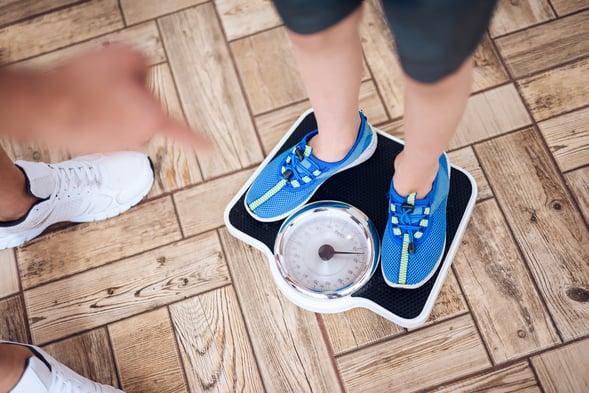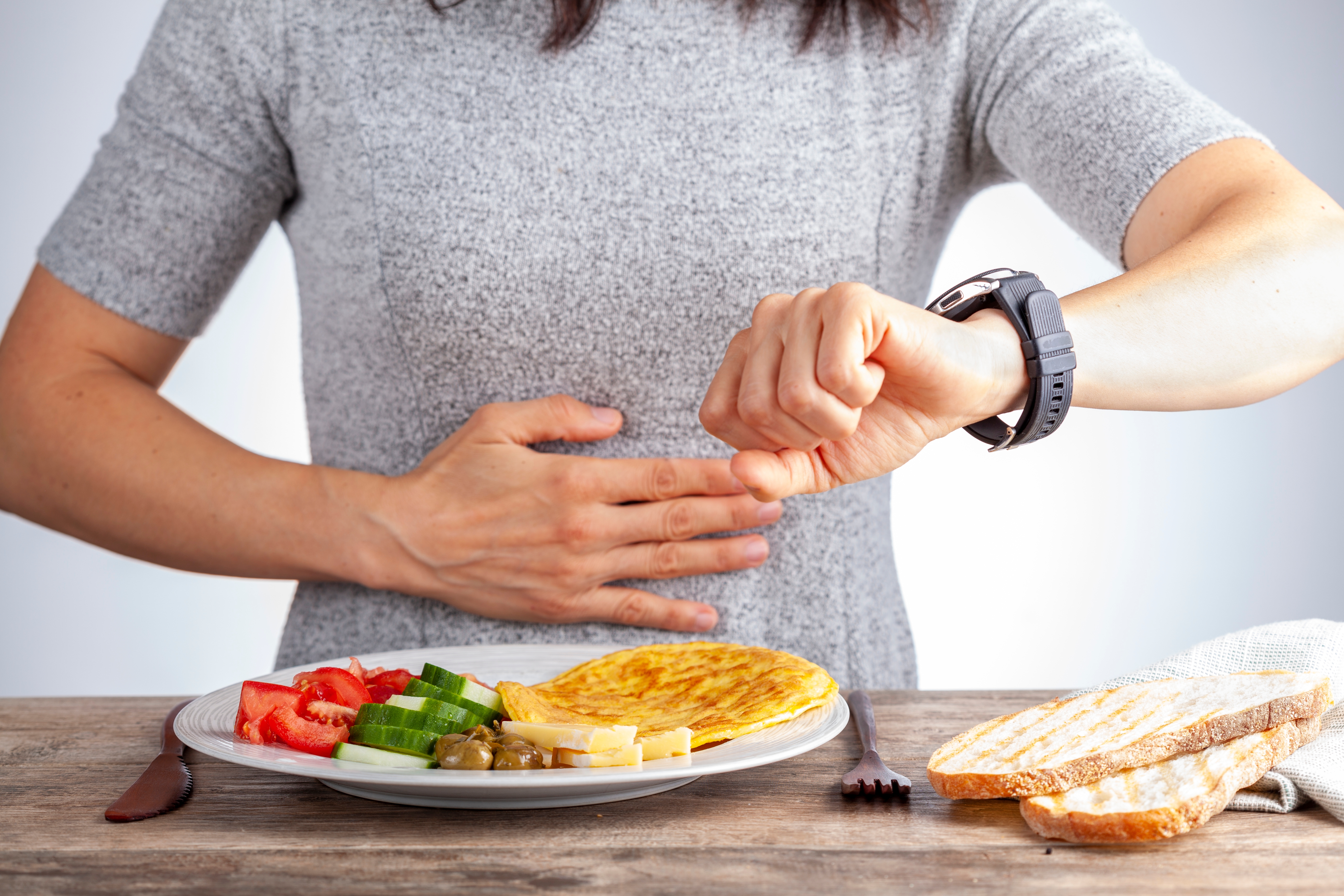
Expert Tips on How to Lose Weight Fast and Keep It Off for Good
If you are someone who has been struggling with their weight, it is time to take an action. You can start by reading the following article for some tips on how to lose weight fast.
If you couldn’t get many results by dieting, you need to know that weight-loss diets might make you feel hungrier and can keep you unsatisfied, also they eliminate major food groups and are mostly unreliable. These are some of the major reasons why you may struggle to stick to a healthier eating plan.
Everybody has varied demands; therefore, you might find that certain dietary habits and advice are more effective than others. There are some general recommendations that apply whenever you want to lose weight, regardless of whether you succeed with a low-carb diet or a diet that emphasizes whole foods.
There are numerous diets, medications, and meal replacement programs that claim rapid weight loss, but the majority of them are unjustified by scientific evidence. However, there are various scientifically supported ways that can help you manage your weight. These include sensible carbohydrate choices, healthy eating, and approaches that work to:
- help you feel fuller for longer while reducing hunger and appetite;
- simultaneously boost your metabolic health
- result in gradual weight loss;
Some of these tips may help you lose weight rapidly, but to be honest, quick weight loss is inconsistent. It will help you improve your health and increase the likelihood that you will lose weight permanently if you concentrate on long-term health and behaviours you can maintain.
These tactics include exercise, calorie counting, intermittent fasting, and lowering the number of carbs in the diet.
This article will emphasise successful weight loss approaches you definitely should take note of.
How to Lose Weight in 6 Simple Steps:
1. Cutting back on refined carbs to lose weight fast
The kind of carbohydrates that are found in refined sugars and starches, or carbohydrates, can make you hungrier. This is because they raise your blood sugar quickly and then it drops just as quickly.
So, to lose weight quickly, you should cut back on refined carbs. This will help you to lose weight quicker because hunger levels go down and you eat less.
The main goal is to get your body into a state of ketosis where it starts burning fat for fuel instead of sugar from carbohydrates.
Eating a low-carb diet will not only help you lose weight but can also improve your heart health and lower your risk of diabetes. A low-carb diet may be beneficial for many reasons.
Refined carbs are usually processed and have a high glycemic index. In contrast, complex carbs like whole grains are unprocessed and have a low glycemic index.
There is no magic diet that will help you lose weight quickly. But, if you choose to eat more complex carbs like whole grains along with a calorie deficit, you’ll benefit from higher fibre and lower sugar levels.
If you are not sure what that means, consult your doctor for recommendations.
2. Remain Active by Exercising
Exercise is not the only way to lose weight. However, it is one of the most effective ways to go forward. In order to lose weight quickly with exercise, you need to exercise a lot. This means that you should have a high frequency and intensity of workouts.
One type of exercise that is very popular right now is HIIT (High-Intensity Interval Training). This type of training has been shown to help people lose weight in a shorter period of time than traditional aerobic training. What makes HIIT so effective is the intensity level. The high-intensity intervals are what make this type of training so effective and efficient for losing weight quickly.
Lifting weights also provides a lot of advantages. It will help you burn calories and keep your metabolism from slowing down, which is a common side effect of dieting.
Strength training should be done three to four times a week. If you're new to weightlifting, a trainer can help you get started. Check with your doctor about any new exercise plans.
If lifting weights is not an option for you, doing cardio routines like walking, jogging, running, cycling, or swimming might help you as well and improve your overall health.
3. Experiment with intermittent fasting
Intermittent fasting is an eating pattern where you cycle between periods of eating and fasting. It's been a popular weight-loss technique for many years, but recent research has found that it can be beneficial in other ways too. It involves taking regular, small meals and eating more often throughout the day. According to several studies, short-term intermittent fasting, which can last up to 24 weeks, helps overweight people to lose weight.
There are a number of different intermittent fasting methods, the following are some of the most popular techniques:
- Alternate Day Fasting (ADF) method
- The 5:2 method
- The 16:8 method
- The 24 Hour Fast method
- Eat-Stop-Eat method
The 5:2 diet is one of the most popular intermittent fasting methods. It involves restricting your calories to just 500 to 600 per day for two days a week and then eating as much as you want on the other five days. This means that you can eat normally on Monday, Wednesday, Friday, Saturday, and Sunday – while consuming just 500 to 600 calories on Tuesday and Thursday.
4. Balancing gut bacteria
The gut microbiome has been a hot research topic for the last decade. Scientists have found that the bacteria in our guts have a direct connection to our weight. Around 37 trillion bacteria are among the many different and numerous microorganisms that live in the human gut.
The gut contains bacteria that can be beneficial or harmful to the body. A person's gut bacteria are unique and there are many factors that can affect which types of bacteria live in the gut.
There are many factors that affect the type and amount of good or bad bacteria in a person's gut. A person's diet, age, geographic location, and genetics all play a role in determining their mix of good and bad bacteria. The environment where a person lives also has an effect on their gut microbiome.
The gut is a key player in the immune system, and it's important to keep the gut bacteria happy; as they are also linked to weight management, digestion, and mental health.
Some foods, such as the following, can boost the number of beneficial bacteria in the gut:
- Fermented foods such as kimchi or sauerkraut
- Yogurt
- Cocoa powder
- Legumes
- Coconut oil
- Dark chocolate
5. Increasing Water Consumption
The human body is made up of 60% water, so it's no surprise that drinking water before bed helps you stay healthy. It is essential to drink at least 8-10 glasses of water every day.
When we drink water, it helps us to stay hydrated. Given that water makes up 60% of your body, it is obvious that the clear, calorie-free liquid is essential to almost all internal processes.
Water may aid in weight loss in a number of ways. It could help you increase your metabolism, and make exercise simpler and more effective.
A study done by the University of Birmingham showed that drinking two glasses of water before breakfast can help with weight loss. The study also found that people who drank water before a meal ate less food overall and consumed fewer calories than those who didn't drink anything beforehand.
Several activities, mindsets, and dispositions can influence your body weight, but if you want to lose weight gradually and moderately, it will be wise to make sure you're well-hydrated.
6. Consume protein, healthy fat, and green veggies
Losing weight fast is not easy. You need to be disciplined and have a good diet plan that includes the right foods. A diet high in protein, healthy fats, and vegetables may help you lose weight quickly.
Protein is an important macronutrient for muscle building and repair, and for weight loss. Protein helps keep you feeling full longer because it takes more time to break down than other macronutrients. Consuming protein is the best way to lose weight fast, it helps in two ways: it makes you feel full, and it reduces your appetite.
In addition to the benefits of a higher-protein diet, research suggests that consuming adequate protein may also improve metabolism by increasing the thermic effect of food (TEF) or the amount of energy required to digest food.
Vegetables also help with weight loss because they are low in calories, a great source of vitamins, and minerals, and high in fibre which means that they take longer for the body to digest.
Also, the other best way to lose weight is by eating healthy fats. They are a crucial part of any diet and can help you lose weight fast and keep it off for good.
Healthy fats are important for heart health and brain function, as well as for keeping your cells healthy. They are essential for the body in many ways, including:
- Adding flavour to food
- Helping you feel full faster
- Improving your mood and cognitive function
- Reducing inflammation in the body
- Promoting healthy skin, hair, and nails
- Supporting brain health
What about calorie intake and portion size to consider?
The number of calories you eat and the size of your portions can have a huge impact on how much weight you lose.
The average person should consume around 2000 calories per day, but this number can vary depending on their activity level and other factors.
If you want to lose weight, you should aim to eat less than 2000 calories per day and make sure that the majority of those calories come from nutritious foods.
It is important to note that eating too few calories can be dangerous and less effective for losing weight. Aim to reduce your calories by a sustainable amount, and be sure to eat enough protein, healthy fats, and fibre.
You might think that it's a good idea to cut down on the number of calories in order to lose weight faster, but this isn't necessarily true. If you don't eat enough food, then your body will start breaking down its own muscle tissue for energy, which can lead to complications such as muscle wasting and organ damage.
How fast will you lose weight?
In the first week of a diet plan, you will lose weight more quickly and at a higher rate. This is because your body is not yet used to the changes in your diet or exercise routine. After this initial period, you will lose weight at a slower but more consistent rate.
This happens because your body has adjusted to the changes in your diet or exercise routine, and now it can burn calories at a more consistent rate. Losing weight is a process that takes time. It is important to be patient and not get discouraged by the scale, because it can fluctuate from day to day.
The scale can be a frustrating tool for those trying to lose weight. But when you look at the bigger picture and focus on how much progress you are making, it becomes less frustrating. Losing 1-2 pounds each week is typically safe unless your doctor advises differently. Consult your doctor about a safe degree of calorie restriction if you want to lose weight more quickly than that.
Other diets that limit calories and enhance whole foods have been linked to improved metabolic indicators and delayed ageing. Finally, you may discover that a more balanced diet rich in complex carbs is more sustainable for you.
The bottom line
It is important to realize that although there are quick remedies for weight loss, it’s hard to say that any of them is healthy enough. While losing weight rapidly may be your objective, it's also crucial to consider the long term. Usually, water weight drops rapidly, but fat loss takes longer, and achieving long-term weight loss may take longer than you would like.
A nutritious, balanced diet is the greatest method to achieve and maintain a healthy weight. You'll probably feel less hungry if you cut back on carbs or replace refined carbs with complex carbs. Feeling hungry is frequently the cause of difficulty in sticking to a weight loss plan, therefore it's critical to discover a style of eating that leaves you feeling content.









Leave a comment